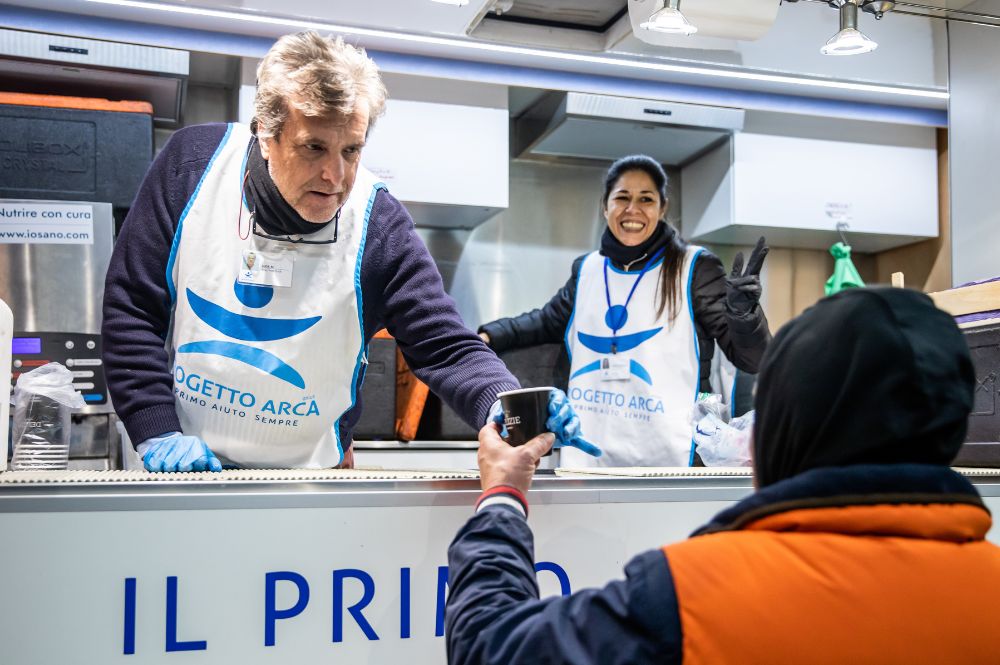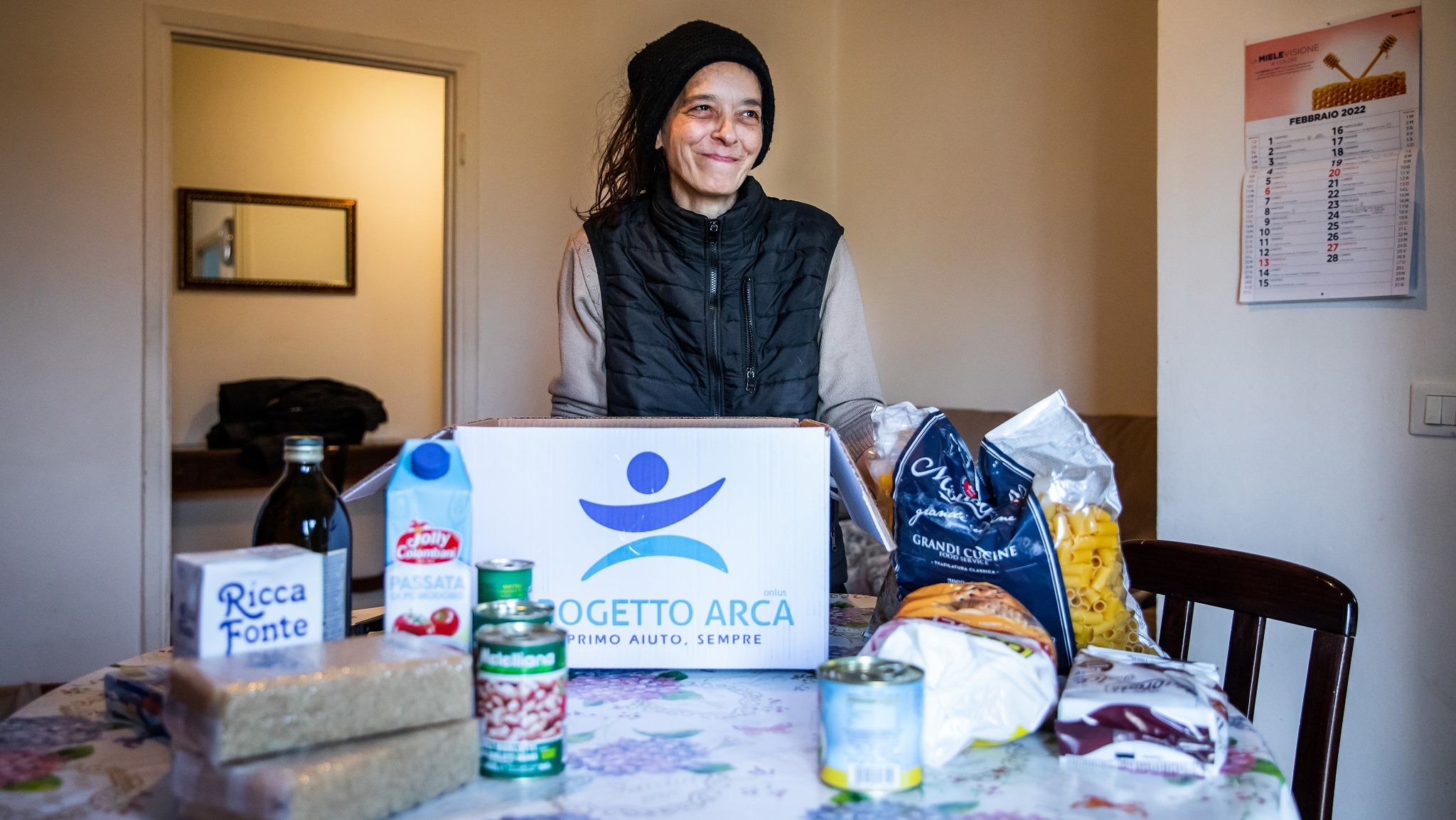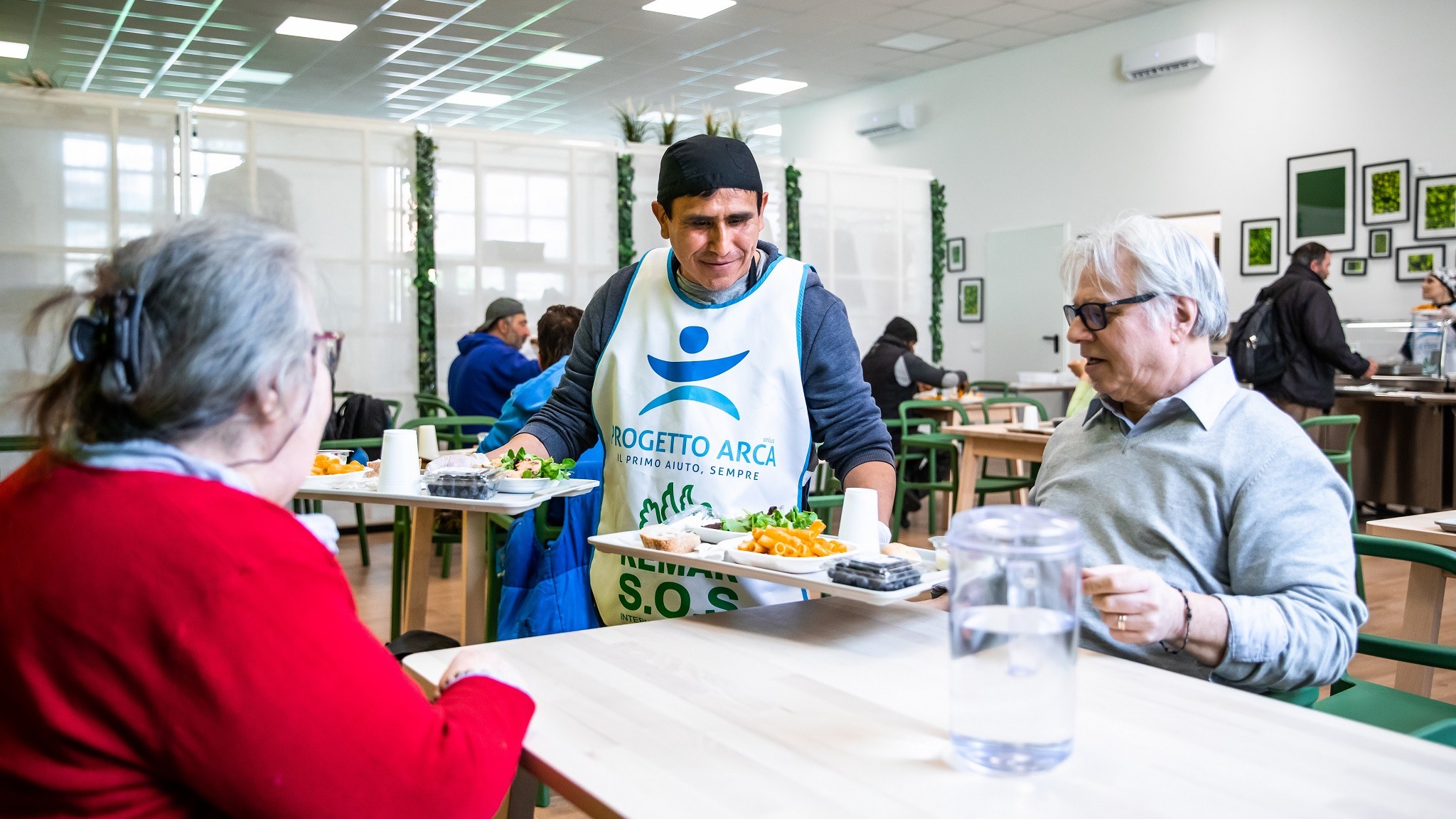
Social Markets, where shopping fuels inclusion
Beautiful and functional like real shops
With the difference that there are no prices or receipts to pay, but rather people welcoming and people coming in.
In our 11 Social Markets – 3 in Milan, 2 in Naples and the others in Rozzano, Faenza, Bari and Ragusa – more than 1,600 families facing economic hardship can do their grocery shopping for free, according to their needs and with the dignity of real customers.
The Added Value is the Freedom of Choice
Those in need of food assistance should also have the freedom to choose what they receive. This is the principle behind our Social Markets, and it represents a significant step forward compared to the traditional distribution of food parcels.
Shopping in the Social Markets is no different from shopping in any regular retail store. Equipped with a cart, families have the freedom to choose from a variety of long-lasting food products, bread, fruit, vegetables, refrigerated goods, baby products, personal hygiene items, and household cleaning supplies, based on their own needs.
It’s not just about filling an empty pantry. With the Social Markets, we safeguard the dignity of individuals by restoring their autonomy and responsibility.
How Social Markets work
Access is granted through referrals from social services and after an interview with our social workers, who assess the household composition (such as the presence of minors or the elderly) and their socio-economic condition. Each beneficiary family receives a points-based card, calculated based on the number of household members, which they use to shop. Instead of prices, the products have a point value, which is deducted from the card based on the “purchases” made. The card is recharged monthly, for up to a maximum of 12 months.
The underlying principle is that the assistance is time-limited to avoid the prolongation of the need, providing as many families as possible the opportunity to access the service.
Refrigerators and shelves must be continuously stocked to ensure a balanced and comprehensive range of products. The Social Markets benefit from support from the FEAD (European Fund for Aid to the Most Deprived), donations from companies in the agri-food supply chain, surplus goods from organized large-scale distribution that are recovered and saved from waste, as well as our direct purchases. We are always looking for new partnerships to strengthen our support support network.
A pathway to autonomy
More than just stores to pick up everyday necessities, the Social Markets are places of social interaction that educate people on how to shop wisely and manage household budgets.
In the role of tutor-cashiers, Progetto Arca’s volunteers, in addition to checking the quality and expiry dates of the products, guide “customers” through the aisles and shelves, offer advice on how to create a nutritionally balanced shopping cart, and encourage responsible management of the points they have been assigned.
You can give me a pack of pasta, and that’s fine, but I also need your eyes. When I come here to shop, I know I’m getting both economic and moral support. It feels like being with family because there’s dialogue and understanding. And that’s important.
Marisa







